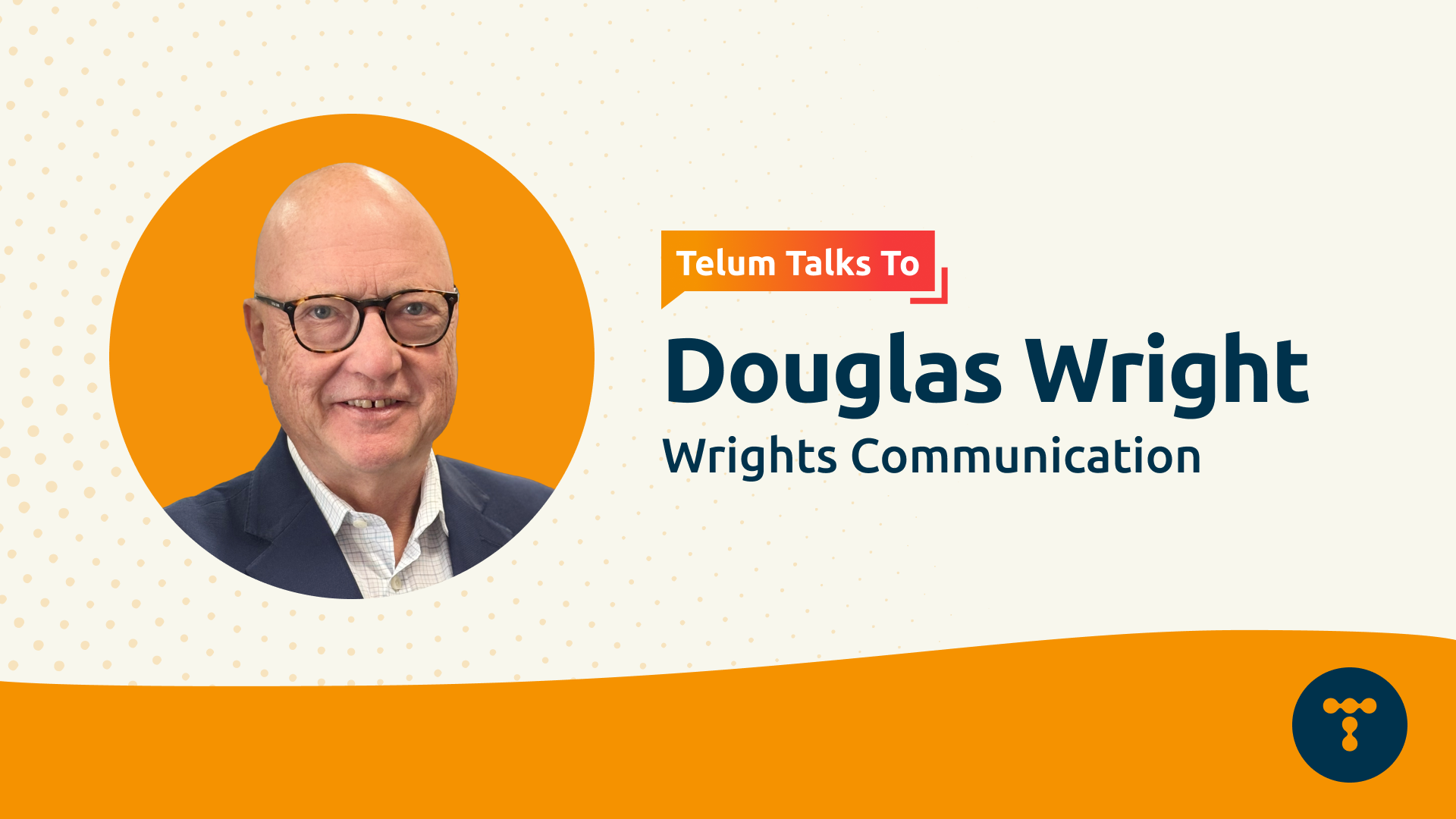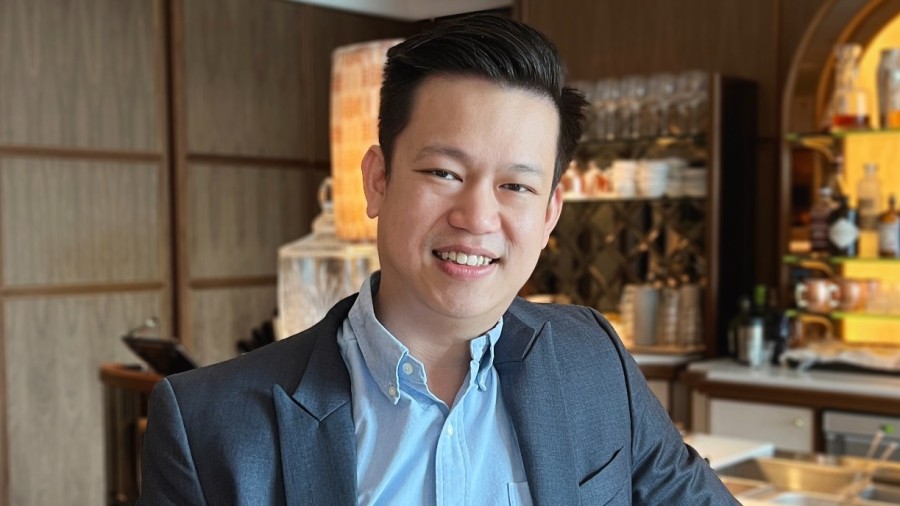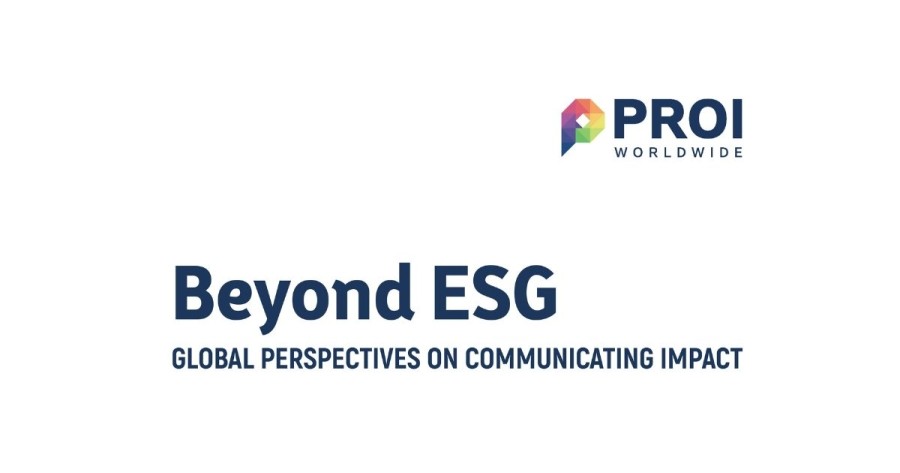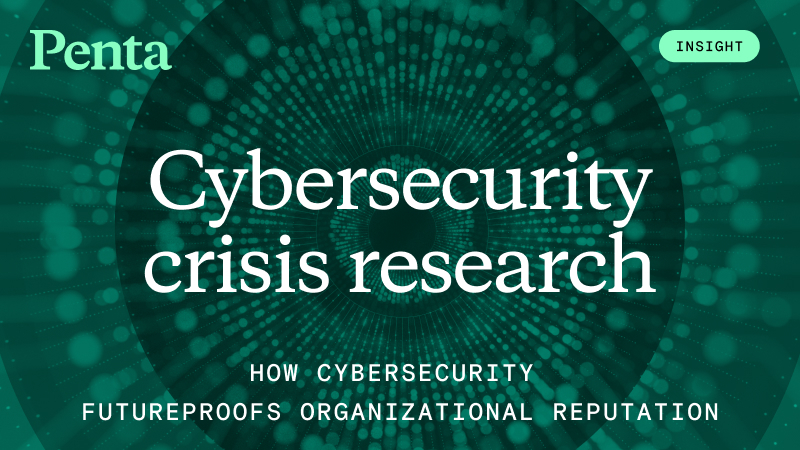Douglas Wright co-founded independent agency, Wrights Communication, in Melbourne more than 35 years ago. We caught up with Douglas to get his insights on what makes a great PR generalist, the role of specialists and subject matter experts, and the development of people in the PR profession.
What defines a PR generalist, and what are their core skills and traits?
Let’s talk about generalists in general. In most professions, that's where you start. In the medical profession, initially you're a generalist. In accounting, you're a generalist. In the law profession, you're a generalist.
So in the PR or communications profession - and I look at it as a profession, not an industry - we should have the same sort of approach as the other professions, which is where you get a broad grounding in the skills required to undertake your profession.
The most important general skill in communication is listening. That can be taught, or you can be taught to improve that with active listening.
The second general skill is curiosity, but professional curiosity, in that you wouldn't dare tackle a project, an issue or an opportunity without doing your research.
Creativity is also important and is kind of a subset of curiosity. How can I do this better? How can I do this differently?
Another generalist skill is secondary and tertiary knowledge, which is knowing where to go to get information. You don't necessarily have to know it yourself, but you need to know where to go to get it, or you need to know who to talk to that does know where to go to get it.
How do you go about developing those skills and embedding those skills in your team here at Wrights? Do you have a structured training or education approach, or is it more just on the job learning, mentoring and coaching?
We have a structured approach and there are some very good people out there providing training courses.
I belong to the Public Relations Society of America and the Chartered Institute of Public Relations in the UK. They have wonderful books and excellent courses, which I encourage the staff to participate in.
We have weekly in-house sessions on developments in communication, where we all are asked to bring forward something we learned in the last week and discuss that.
We have a budget for training, and everybody's expected to attend two professional training courses a year, which helps them in their professional development.
What are both the advantages and disadvantages of being a generalist in the PR profession?
You're working in a lot of different spheres, so you have a broader knowledge base and you have a broader network, because you have to work in different spaces all the time.
That network, even though they're not necessarily connected, can be beneficial if you're tackling a problem that might need a different solution. And because you're working in other areas, that solution occurs to you.
The disadvantages are that a lot of people think that you have to be a specialist to know something, or they don't necessarily think that you know what you're doing. So you have to be comfortable in saying no, I don't, but I've spoken with so and so who does, and I'm conveying that information.
When we're a consultancy, we work with specialists in their industries. We don't have to have the knowledge of their industry; we have to know the general parts of what's happening in the industry and have a concept of what's going on, but they're the subject matter experts.
We have to know how to get that knowledge from them and communicate it, or how to understand an issue and be able to address that issue on their behalf.
A good generalist knows when to call in the specialist. Oh God, I don't know this. There's no way I'm going find this out. I've got to talk to somebody that does know it.
Looking at corporate and consumer PR, are there different skill sets that are required for each of those, and how do you equip PR generalists to work effectively in both spheres?
It depends whether you're talking corporate in Australia or corporate internationally. If you're working in corporate in the United States, for example, probably the most litigious jurisdiction in the world, then you have to be super cautious.
We work for US companies and we allow 10 days for a media release to be approved, because it's going to take that long to get through their legal system.
Consumer PR is more, shoot from the hip, but in corporate PR, you just can't.
Years ago, your database was clippings in a newspaper office. Now the database is the internet and it's accessible to anybody and everybody. A sin you committed five years ago is still as visible today as it was then.
In our part of the world, corporate's becoming more demanding, too. The ASX now rates companies on their ESG, and so everything you're putting out or communicating - all content - has to be prepared with the knowledge that it's going to be hugely scrutinized.
Do you think that PR professionals entering the industry today should start as generalists before they specialise in something, or is there value in choosing an initial specialism to delve into in the early days?
Everybody starts as a generalist, but the question is where do you start to specialise? Do you specialise at university?
Some people come out of university and you wonder what they spent the last three years doing, and some come out job ready.
I think that at some stage during a three-year degree, at least you should start to specialise, so you've got an indication of what you want to do.
And the differences between consumer PR and corporate PR and government relations get quite big as you get deeper into it - there are different skills required.
How easy is it for someone who has gone down that specialist route, who's gone into a niche partway through their career, to suddenly diversify and become a generalist?
If you've got the basic skills of communication, then those same skills can be applied.
You can specialise in a certain industry and build skills specific to that sector, but you will always take the basic skills of communication with you when you move on. And really what you're dropping off is the subject matter knowledge you’ve gleaned from your time in that sector.

Feature
Telum Talks To: Douglas Wright, CEO of Wrights Communication
by Telum Media
12 February 2025 4:00 PM
6 mins read
Telum Media creating connections
Get in touch to learn more
You might also enjoy
Moves
Aaron Tan has joined FleishmanHillard as Auto Practice Lead and Account Director, bringing experience across branding, communications, marketing and digital strategy.
Based in Singapore, he has accumulated more than 15 years of experience, having previously held senior roles at agencies including The Ate Group and W Communications.
31 December 2025 2:49 AM
1 min read
Research
PROI has released their latest report, "Beyond ESG: Global perspectives on communicating impact". With insights from 11 global communications agencies, the report highlights key trends shaping how ESG and purpose will be communicated in 2026.
Ted Deutsch, Executive Managing Director of RF|Binder and Chair of PROI's ESG Working Group, said: "While certain markets are shying away from acronyms and terms that are seen as overly political, this PROI report confirms that companies are still focused on driving change through sustainability, corporate culture and good governance. The challenge now lies in communicating this with authenticity."
ESG across the regions
ESG maturity differs widely by region. Markets such as Australia, Switzerland, and the Middle East operate in relatively advanced regulatory environments. In Australia especially, Paula Cowan, Managing Director at ImpactInstitute, described ESG as no longer a "nice to have," but rather a licence to operate.
Meanwhile, countries such as Poland and the Czech Republic are experiencing signs of ESG fatigue. As Dirk Aarts, CEO of 24/7 Communication, observed in Poland: "...enthusiasm has cooled. Many businesses now treat ESG chiefly as a regulatory requirement rather than a reputational advantage."
In Thailand, ESG is viewed as central to long-term competitiveness, economic resilience, and access to global markets. Whereas in Ukraine, ESG is shaped by wartime realities and EU integration, with social impact and resilience taking precedence.
Despite their differences, one thing stays consistent: stakeholder expectations are converging. The report highlights how companies are increasingly expected to demonstrate real progress and credible outcomes rather than just showing intent.
Global pressures driving change
It was reported that every region, in one way or another, was being impacted by global forces reshaping their ESG communications. Regulatory alignment stood out as a major driver, particularly around mandates by the International Sustainability Standards Board (ISSB), the Corporate Sustainability Reporting Directive (CSRD), and other international disclosure frameworks.
Trade-related mechanisms, such as the EU's Carbon Border Adjustment Mechanism, have resulted in a push for ESG adoption in export-oriented economies like Thailand. Chelsea King, Head of PR Operations and Editorial Director Midas PR, explained: "This creates direct financial pressure and has spurred Thailand’s domestic carbon tax and mandatory reporting efforts."
Political dynamics also play a significant role, with the U.S. becoming the focal point of ESG politicisation, influencing corporate behaviour across multiple markets. This has contributed to more cautious language globally. For example, in Canada, "...U.S. discourse has influenced Canadian corporate leaders to reconsider how explicitly they use the 'ESG' label," said Kimberly Cohen, CEO of Brown & Cohen.
At the same time, global enforcement action against greenwashing is increasing in Canada, as well as other markets such as Australia, Switzerland, and the UK, reinforcing a shift toward proof-based communication.
Language and framing
The report outlined a clear global trend: the declining use of the acronyms "ESG" and "DEI" in public-facing communications. While these terms remain common in investor, regulatory, and technical contexts, organisations are shifting toward simpler and less politicised language, such as "sustainability," "responsible business," "resilience," and "impact."
Kimberly noted that in Canada, these acronyms are increasingly being broken down into their component parts, whereas in Poland, Dirk explained that the narrative now focuses on health, quality of life, and local community impact - moving away from war language, such as "fighting climate change," toward tangible well-being. This shift doesn't reflect a divergence from ESG principles, but rather as an effort to improve clarity, reduce political risk, and connect more directly with local audiences.
Across several regions, including Canada, the UK, the U.S., Thailand, and the Middle East, an increase in social initiatives continues, but under different labels, such as workforce development, inclusion and belonging, human capital management, and community impact.
Communications challenges
Across all regions, communications leaders are reported to have been facing similar challenges, particularly in balancing ambition with credibility. Stakeholders expect companies to act, but are increasingly rejecting vague or exaggerated claims. Greenwashing, social-washing, and "greenhushing" - deliberately under-communicating progress, which is reported to be rising in Australia - are recurring risks.
Another challenge is internal alignment. ESG data and narratives often sit across multiple functions at an organisation, and when teams are not aligned, messaging can become inconsistent or fragmented, resulting in a lack of trust. In sensitive contexts, such as in Ukraine or politically polarised markets like the U.S. and UK, audiences are sceptical and quick to point out inauthenticity.
Looking ahead
Contributors generally predict that over the next two to three years, ESG communications are expected to become more integrated with financial reporting and core business strategy. Many regions anticipate stricter disclosure requirements, greater use of assurance, and increased focus on governance as the foundation for environmental and social credibility.
Media scrutiny is also intensifying. Investigative reporting on ESG claims is growing, while routine sustainability announcements receive less attention unless backed by data or clear outcomes. At the same time, there is continued demand for accessible explanations, case studies, and stories that demonstrate how ESG efforts deliver tangible benefits to communities, employees, and economies.
Practical guidance for communications professionals
Based on insights across all 11 markets, some common practical guidance include:
- Lead with evidence: Anchor claims in data, defined methodologies, and disclosures, with assurance.
- Adapt language and be precise: Localise messaging and ensure clear messaging that resonates with target audiences, while avoiding unnecessary jargon.
- Show progress over time: Share interim milestones and regular updates to demonstrate momentum and avoid greenwashing or greenhushing.
- Integrate ESG into the business narrative: Position environmental, social, and governance efforts as part of core strategy and operations, rather than a standalone initiative globally.
Find the full report, including in-depth insights for each region, here.
29 December 2025 6:15 AM
5 mins read
Research
Penta’s latest white paper, "Cyber risk is stakeholder risk", explores the growing reputational impact of cybersecurity incidents across industries and stakeholder groups. The analysis leverages Penta’s media intelligence and stakeholder sentiment modelling, covering more than 4.8 million global mentions from January 2024 to August 2025.
Key trends shaping the cyber risk landscape
The study finds that overall stakeholder trust is eroding, reflected in strongly negative sentiment around customer privacy, data security, and incident response across all stakeholder groups - particularly regulators and investors.
Cyber risk is also emerging as a geopolitical concern. State-linked attacks are increasingly viewed as potential national security issues, exposing organisations operating in sensitive sectors to heightened geopolitical risk.
At the same time, reputation recovery is no longer just about containment. The research suggests that a brand’s ability to rebound from a cybersecurity incident is closely tied to the effectiveness of its response, with fast and visible executive action outperforming opaque or delayed communications.
Cyber risk breakdown by industries
Key trends shaping the cyber risk landscape
The study finds that overall stakeholder trust is eroding, reflected in strongly negative sentiment around customer privacy, data security, and incident response across all stakeholder groups - particularly regulators and investors.
Cyber risk is also emerging as a geopolitical concern. State-linked attacks are increasingly viewed as potential national security issues, exposing organisations operating in sensitive sectors to heightened geopolitical risk.
At the same time, reputation recovery is no longer just about containment. The research suggests that a brand’s ability to rebound from a cybersecurity incident is closely tied to the effectiveness of its response, with fast and visible executive action outperforming opaque or delayed communications.
Cyber risk breakdown by industries
- Retail: The most negative sentiment overall, driven by the direct consumer impact of breaches, sensitive customer data, and operational disruption.
- Technology: The most visible sector in cybersecurity discourse, where recurring attacks and regulatory fallout continue to erode trust in digital infrastructure.
- Telecommunications: Among the hardest-hit sectors, affected by repeated attacks and legacy breaches resurfacing on the dark web, raising national security concerns.
- Financial services: Sustained negative sentiment linked to high-profile breaches, customer data exposure, and significant crypto-related losses.
- Healthcare: Persistent distrust driven by repeated breaches involving patient and billing data, alongside heightened scrutiny of AI-related data risks.
- Automotive: Negative sentiment following ransomware attacks that disrupted dealer operations and raised concerns about digital resilience in increasingly connected vehicles.
Overall, the study notes that industries with the most direct consumer interfaces tend to experience the steepest reputational declines following cybersecurity incidents.
Key takeaways for communications and public affairs leaders
Key takeaways for communications and public affairs leaders
- Cyber risk is board-level risk: It must be managed as a cross-functional priority, not solely as a technical or compliance issue.
- Integrated response drives resilience: Organisations that align IT, legal, communications, and executive leadership with clear escalation protocols and stakeholder-specific strategies are better positioned to protect trust and reputation.
- Proactive oversight is essential: Scenario planning, continuous monitoring, and treating incidents as reputational challenges enable faster, more effective responses.
- Leadership visibility matters: Transparent, decisive, and timely action by executives is the most critical factor in stabilising stakeholder confidence and reinforcing organisational credibility.
29 December 2025 1:47 AM
3 mins read


